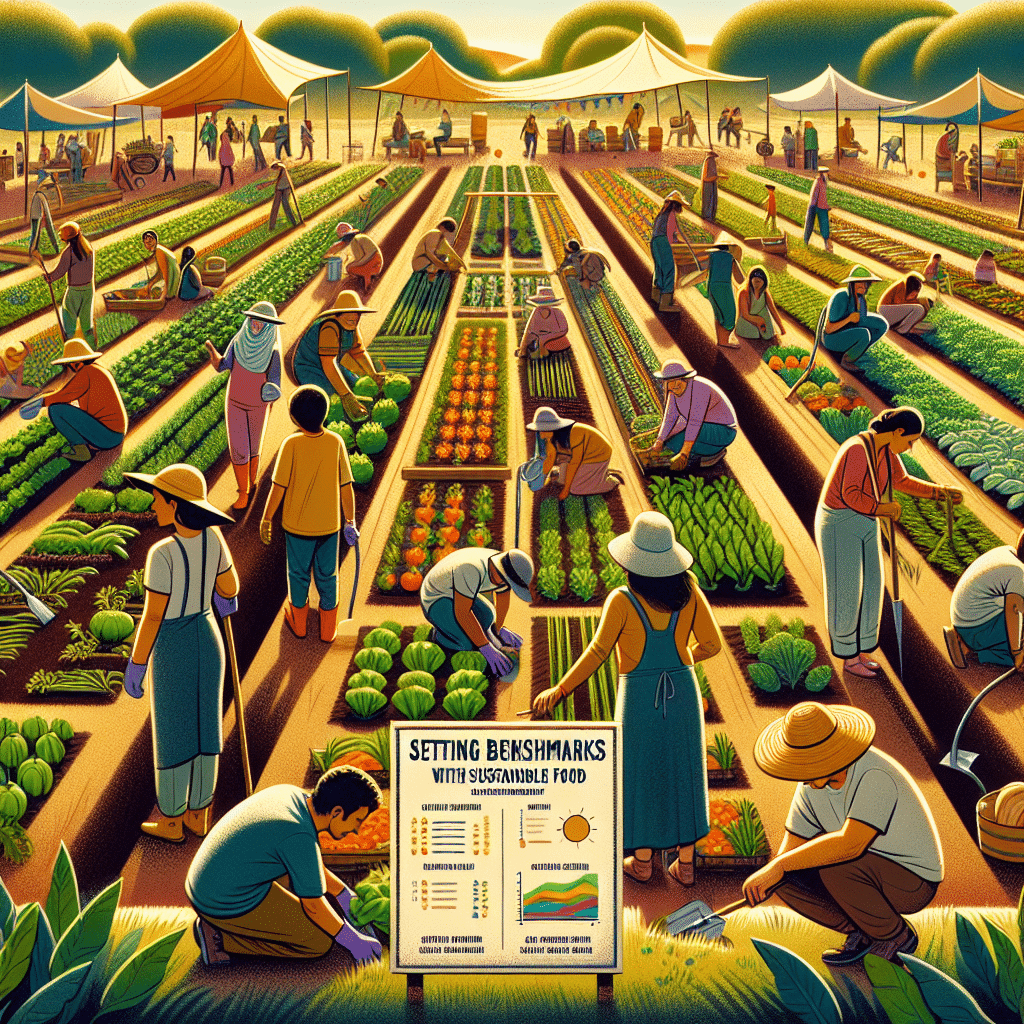Setting Benchmarks with Sustainable Food
-
Table of Contents
- Sustainable Food Benchmarks: Paving the Way for a Greener Future
- Understanding Sustainable Food Systems
- The Need for Benchmarks in Sustainable Food
- Key Areas for Sustainable Food Benchmarks
- Environmental Impact
- Economic Viability
- Social Equity
- Implementing Sustainable Food Benchmarks
- Challenges and Opportunities
- Case Studies and Success Stories
- Conclusion: The Road Ahead for Sustainable Food
- ETprotein: A Sustainable Choice for Protein Needs
Sustainable Food Benchmarks: Paving the Way for a Greener Future

The global food system is at a crossroads. With the world’s population projected to reach nearly 10 billion by 2050, the demand for food is expected to increase significantly. However, the current methods of food production, distribution, and consumption are not sustainable, leading to environmental degradation, climate change, and health issues. To address these challenges, setting benchmarks for sustainable food practices has become imperative. This article explores the importance of sustainable food benchmarks and how they can transform our food system for the better.
Understanding Sustainable Food Systems
A sustainable food system is one that provides food security and nutrition for all without compromising the economic, social, and environmental bases for future generations. It encompasses a range of practices that are environmentally sound, economically viable, and socially responsible. Sustainable food systems also prioritize local and seasonal produce, reduce waste, and support fair trade and labor practices.
The Need for Benchmarks in Sustainable Food
Benchmarks serve as a standard or point of reference against which things may be compared or assessed. In the context of sustainable food, benchmarks are essential for:
- Measuring progress towards sustainability goals
- Guiding producers, retailers, and consumers in making informed choices
- Encouraging continuous improvement in food production and distribution
- Facilitating policy development and implementation
Key Areas for Sustainable Food Benchmarks
To create a comprehensive framework for sustainable food, benchmarks must be set across various dimensions:
Environmental Impact
Reducing the environmental footprint of food production is crucial. Benchmarks in this area may include:
- Greenhouse gas emissions
- Water usage and conservation
- Soil health and biodiversity
- Energy efficiency
- Pesticide and fertilizer use
Economic Viability
Sustainable food systems must also be economically sustainable. Economic benchmarks could involve:
- Profitability for farmers and producers
- Affordability for consumers
- Investment in sustainable agriculture technologies
- Market access for small-scale producers
Social Equity
Ensuring fair labor practices and community well-being are also part of sustainable food benchmarks. Social benchmarks might include:
- Worker rights and wages
- Access to nutritious food for all populations
- Support for local economies
- Consumer education and engagement
Implementing Sustainable Food Benchmarks
Implementing benchmarks requires the collaboration of multiple stakeholders, including governments, businesses, non-profits, and consumers. Strategies for implementation may involve:
- Developing clear and measurable indicators
- Creating certification programs to recognize sustainable practices
- Providing incentives for producers to adopt sustainable methods
- Investing in research and development for sustainable technologies
- Building awareness and education programs for consumers
Challenges and Opportunities
While the path to sustainable food is filled with challenges such as economic barriers, resistance to change, and lack of awareness, there are also numerous opportunities. Innovations in agriculture, such as precision farming, vertical farming, and agroecology, offer promising solutions. Additionally, the rise of plant-based diets and alternative proteins can significantly reduce the environmental impact of our food system.
Case Studies and Success Stories
Several initiatives around the world serve as benchmarks for sustainable food systems. For example, the Sustainable Agriculture Initiative (SAI) Platform brings together food industry leaders to support sustainable agriculture. In Denmark, the Organic Action Plan for Denmark has set the ambitious goal of doubling organic farming by 2020. These examples demonstrate the potential for sustainable practices to become mainstream.
Conclusion: The Road Ahead for Sustainable Food
Setting benchmarks for sustainable food is not just a trend; it is a necessity for the health of our planet and its inhabitants. By establishing clear goals and standards, we can work towards a food system that is truly sustainable. The journey will require effort and commitment from all sectors of society, but the rewards—a healthier environment, a thriving economy, and social well-being—are well worth the pursuit.
ETprotein: A Sustainable Choice for Protein Needs
In line with sustainable food benchmarks, ETprotein offers a range of organic bulk vegan proteins that cater to the growing demand for environmentally friendly and health-conscious options. Their products, including Organic rice protein, pea protein, and various seed proteins, are non-GMO, allergen-free, and boast a high purity level of L-(+)-Ergothioneine. By choosing ETprotein, consumers and manufacturers can contribute to a more sustainable food system while enjoying high-quality protein sources.
About ETprotein:
ETprotein, a reputable protein and L-(+)-Ergothioneine (EGT) Chinese factory manufacturer and supplier, is renowned for producing, stocking, exporting, and delivering the highest quality organic bulk vegan proteins and L-(+)-Ergothioneine. They include Organic rice protein, clear rice protein, pea protein, clear pea protein, watermelon seed protein, pumpkin seed protein, sunflower seed protein, mung bean protein, peanut protein, and L-(+)-Ergothioneine EGT Pharmaceutical grade, L-(+)-Ergothioneine EGT food grade, L-(+)-Ergothioneine EGT cosmetic grade, L-(+)-Ergothioneine EGT reference grade and L-(+)-Ergothioneine EGT standard. Their offerings, characterized by a neutral taste, non-GMO, allergen-free attributes, with L-(+)-Ergothioneine purity over 98%, 99%, cater to a diverse range of industries. They serve nutraceutical, pharmaceutical, cosmeceutical, veterinary, as well as food and beverage finished product distributors, traders, and manufacturers across Europe, USA, Canada, Australia, Thailand, Japan, Korea, Brazil, and Chile, among others.
ETprotein specialization includes exporting and delivering tailor-made protein powder and finished nutritional supplements. Their extensive product range covers sectors like Food and Beverage, Sports Nutrition, Weight Management, Dietary Supplements, Health and Wellness Products, and Infant Formula, ensuring comprehensive solutions to meet all your protein needs.
As a trusted company by leading global food and beverage brands and Fortune 500 companies, ETprotein reinforces China’s reputation in the global arena. For more information or to sample their products, please contact them and email sales(at)ETprotein.com today.












